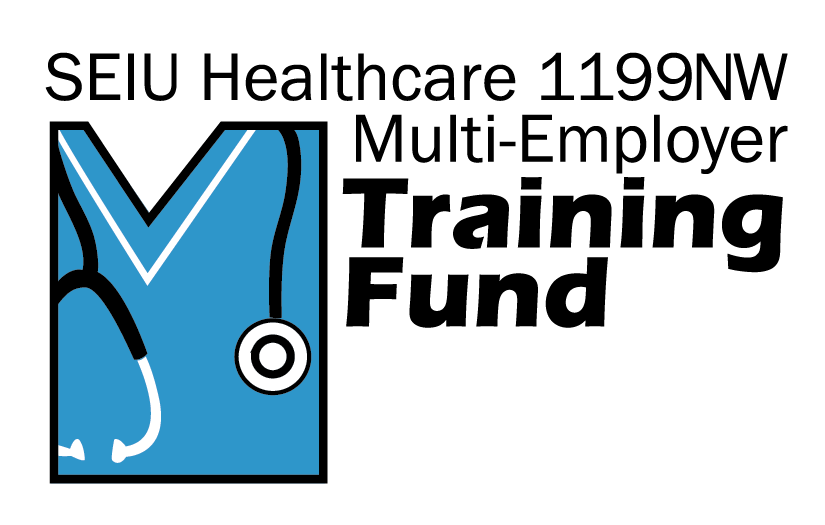Responsive Programming Fund
Meeting Workforce Needs through Joint Labor/Management Projects
The Responsive Programming Fund (RPF) enables workers and management to propose jointly beneficial projects to address unmet training and workforce needs. Selection and funding of individual projects is determined by pre-set criteria that are developed by the Training Fund Board of Trustees.
Training Fund Trustees allocate a total dollar amount to the Responsive Programming Fund every year. Examples of previous programs include the Adult Critical Care Specialty Exam Prep and Advanced Certification for EVS Technicians.
Please contact your Partner Liaison to learn about funding levels for the current year, and review the guidelines below before applying:
Program Guidelines
Responsive Programming Fund project submissions:
- should meet training needs that are otherwise unavailable (or largely inaccessible) through existing programming.
- must be developed jointly with Labor and Management to qualify.
- can address training needs for members of the service, professional or technical and RN bargaining units.
This training can only be provided free of charge to Training Fund eligible workers. Non-eligible workers (e.g., per diem employees) are welcome to participate, but will require separate funding to cover the full participation cost.
Timeline
Responsive Programming Fund proposals are reviewed twice a year. Submit your proposal by:
- February 1, for consideration at the April Training Fund Board of Trustees Meeting
- August 1, for consideration at the October Training Fund Board of Trustees Meeting
Proposals may either be: (a) fully approved for funding; (b) conditionally approved with a request for clarifying information; or (c) declined with suggestions for improvement and re-submission by a future deadline.
Submitting a Project for Funding
Step 1:
To begin the process, Labor/Management teams must submit an RPF Idea Form.
Step 2:
The Training Fund will follow up within a week to clarify and review whether this idea is a good fit for RPF funding.
We can also help with project planning, if needed. The total available RPF amount varies from year to year, so early conversations with the Training Fund will help ensure that your project reflects these factors and overall selection criteria.
Step 3:
If the RPF is feasible and meets selection criteria (see below), our staff will provide a more detailed RPF Proposal Form that must be completed by both Labor and Management partners.
Step 4:
Submit the RPF Proposal Form by the specified deadline to be considered by the Training Fund’s Board of Trustees.
Selection Criteria
Submitted projects are assessed and scored based on the following criteria.
All criteria are scored 1-5
- Impact: Your idea’s potential to serve the greatest number of workers
- 1 = serving fewer workers, 5 = serving a high number of workers
- Relevance across the partnership: Your idea’s potential to meet an unmet training need across multiple Training Fund Employers
- 1 = relevant to a low number of employers, 5 = relevant to a high number of employers
- Cost: Your idea’s number of potential workers served vs. total cost
- 1 = higher cost per worker served, 5 = lower cost per worker served
- Diversity of offerings: Chosen projects should be balanced to serve a variety of job classes
- 1 = multiple offerings proposed to benefit the same job class, 5 = only one option proposed for the same job class
Note: Higher scores increase the likelihood that a project will receive RPF funding, especially when the total number of RPF applications exceed available resources.
Project Examples
The core requirement is that the proposed project will address an unmet training need that adds value to both the worker and the employer.
Some previous examples of Responsive Programming Fund projects include:
Project: Hiring a nationally recognized trainer to come to Seattle to deliver a two-day review course for the VIRR certification test (Vascular Interventional Radiography Registry). The Training Fund paid for the trainer’s costs.
- Need: No review course for this difficult national exam existed on the West Coast.
- Impact: Sixteen IR Techs from across the Training Fund participated free of charge in the two-day training.
Project: Having a local community college develop and offer a 10-week review course for surgical technicians to prepare for the national certification exam.
- Need: No national exam review course for working surg techs previously existed–either locally or nationally.
- Impact: Twenty-two surgical techs from across the Training Fund participated free of charge in the training.
I was able to take the ACCS Exam Prep, and this was made available by the Responsive Programming Fund.
